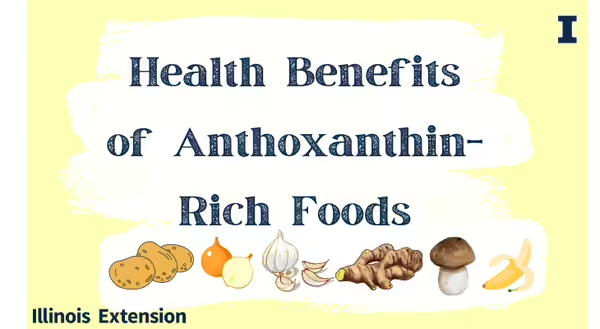
In my opinion, white vegetables don’t get enough time in the spotlight. Unlike the red, orange, and green groups, their white counterparts are often overlooked for not being as “healthful”. Hopefully, this post will change some minds and be a reminder that ALL fruit and vegetable color subgroups are beneficial in different ways. It’s important to eat a rainbow of colors from the plant kingdom to reap the benefits of each colorful subgroup. Phytochemicals (plant chemicals) contribute to the unique smell, taste, and color of our favorite fruits and vegetables. The white fruits and vegetables contain a phytochemical called anthoxanthin. It’s a water-soluble pigment ranging in color from white to creamy yellow.
Dietary Sources of Anthoxanthins
Good sources of anthoxanthins include bananas, cauliflower, garlic, ginger, jicama, mushrooms, onions, parsnips, potatoes, and turnips.
Fun fact about white potatoes- The protein quality of potatoes (90-100) is higher than other heavily consumed plant proteins including soybeans (84) and legumes (73). It’s actually closer to the protein quality of a whole egg (100).
Health Benefits
Fiber and resistant starch intake is linked to a lower incidence of cardiovascular disease and obesity. White vegetables are rich in fiber and resistant starch (resists digestion in the small intestine). In general, you can expect to get 1.0-5.6 grams of fiber per serving when eating white vegetables.
White vegetables are also rich in potassium and magnesium, both of which are under-consumed by Americans. White potatoes are nutrient-dense and particularly rich in potassium which can help protect against hypertension and perhaps improve bone health. Magnesium has many functions in the body and plays a major role in disease prevention overall. Magnesium deficiency is associated with inflammation which can contribute to hypertension, osteoporosis, and type 2 diabetes. One medium baked potato provides 48 mg of magnesium or 12% of the Daily Value.
Garlic contains a molecule called allicin. It’s an antioxidant with antimicrobial and anticancer properties. It has been shown to have protective effects for the cardiovascular system by helping to lower blood pressure and cholesterol. It’s also been studied for its ability to protect nerve cells against damage which means it can help protect against neurodegenerative diseases.
Adding More White Produce to your Diet
Adding more white vegetables to your diet can help increase the amount of potassium, magnesium, fiber, and other phytochemicals in your diet so they should not be discounted. White potatoes are a familiar food for many cultures yet consumption has decreased in recent years, possibly due to their perceived “lack of nutrition”. Potatoes and other white vegetables can and should be a part of peoples’ meal patterns but careful attention should be made to the preparation of these foods. For example, potatoes cooked with butter and salt could be made healthier by swapping those flavor enhancers for olive oil and herbs.
We can preserve the healthful attributes of our vegetables by using more herbs, spices and healthy fats when cooking.
Interested in the red, purple, and blue foods? Learn more about the health benefits of anthocyanins- Eat red, blue, and purple foods for better health: University of Illinois Extension
Interested in the bright orange and yellow foods? Learn about the health benefits of carotenoid-rich foods- Eat carotenoid-rich foods for better health: University of Illinois Extension
Interested in the green subgroup? Learn more about the health benefits of chlorophyll-rich foods- Eat green foods for better health: University of Illinois Extension
Sources:
King JC, Slavin JL. Dietary guidance, human health and white potatoes. Adv Nutr. 2013;392S–400S.
Slavin JL. Carbohydrates, dietary fiber and resistant starch in white veg[1]etables: links to health outcomes. Adv Nutr. 2013;350S–54S.
Leitzmann, Claus. Characteristics and Health Benefits of Phytochemicals. Forschende Komplementarmedizin (2006) vol. 23,2 (2016): 69-74. doi:10.1159/000444063
Nadeem, Muhammad Shahid et al. Allicin, an Antioxidant and Neuroprotective Agent, Ameliorates Cognitive Impairment. Antioxidants (Basel, Switzerland) vol. 11,1 87. 30 Dec. 2021, doi:10.3390/antiox11010087